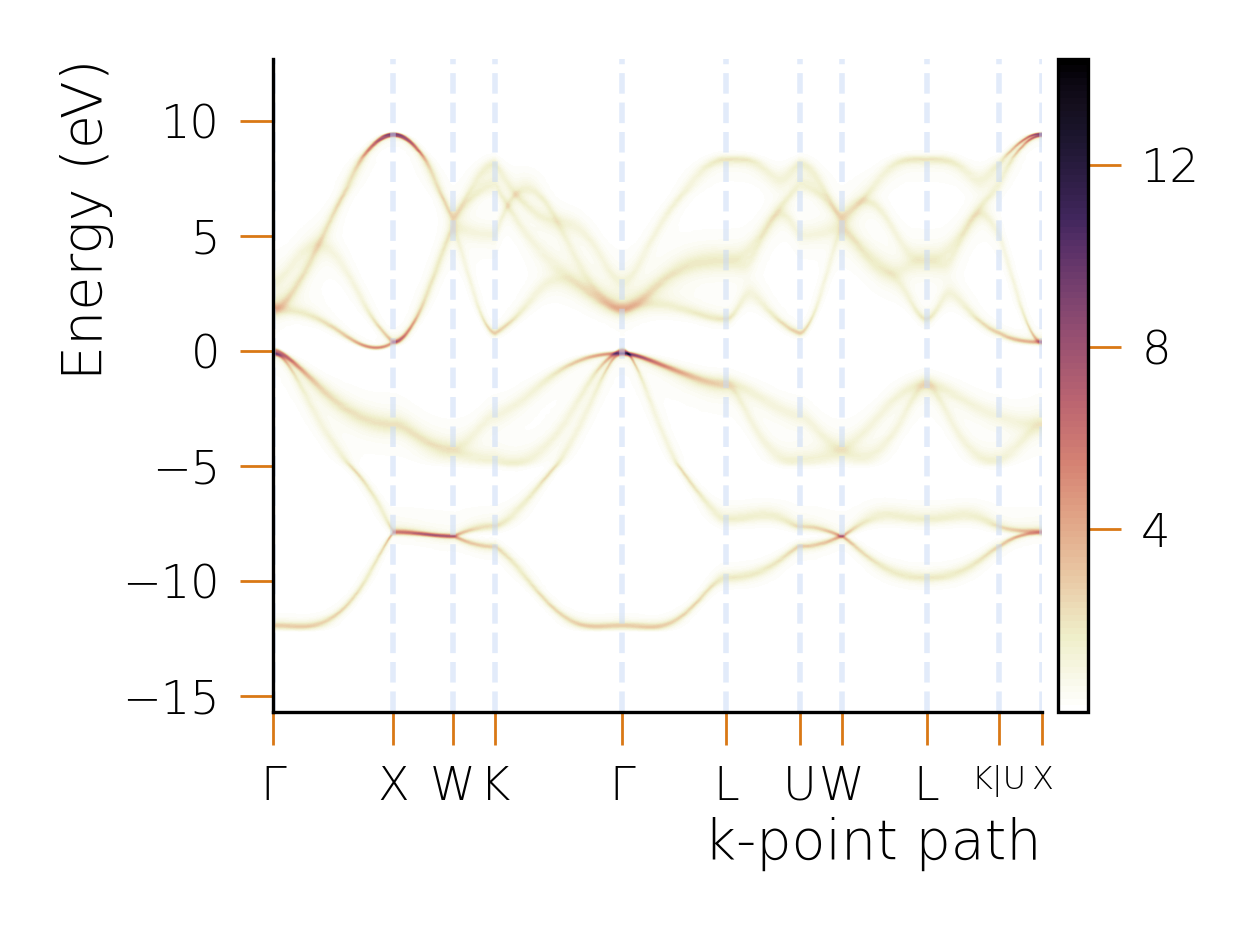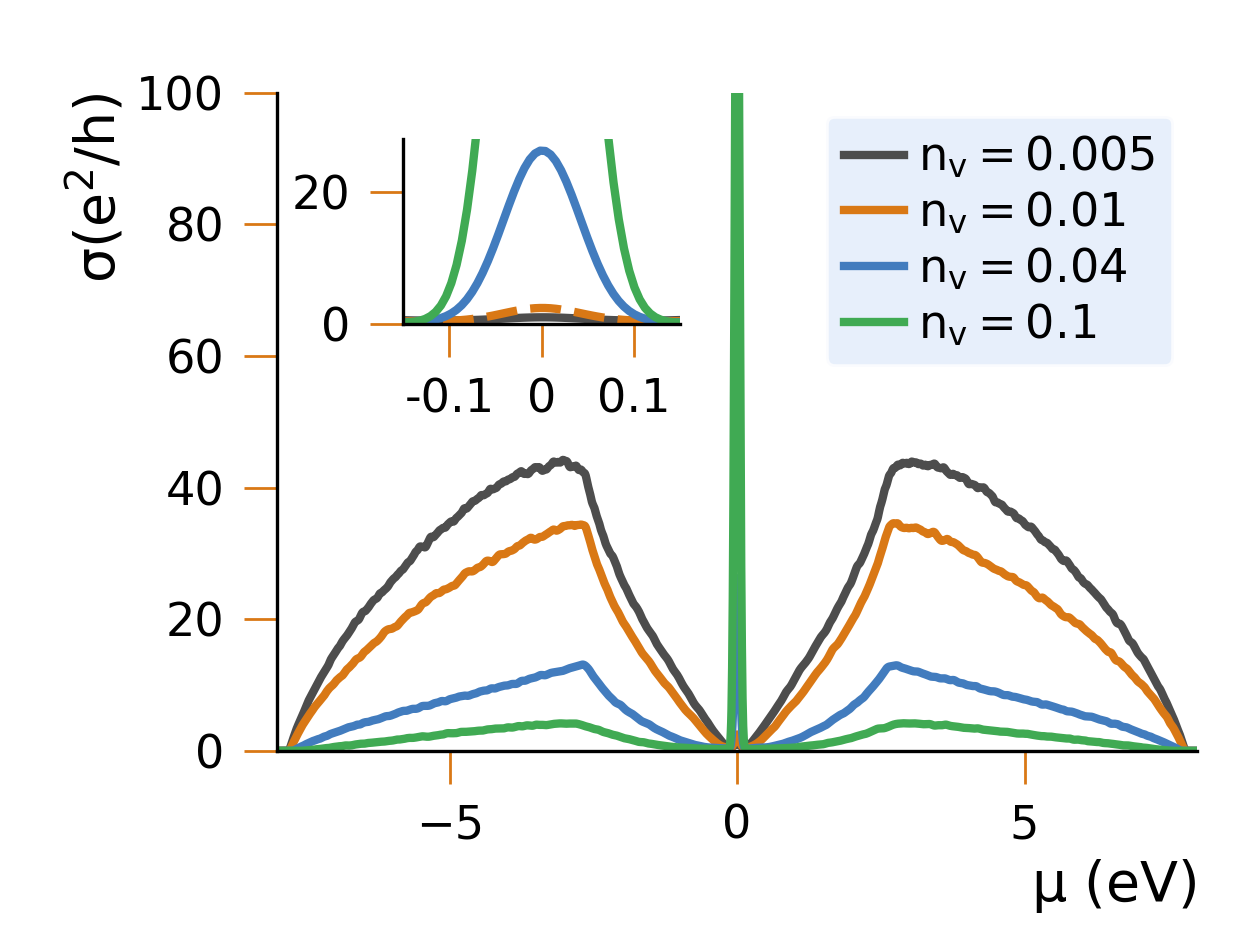Introduction
HQS Qolossal is a Python package that provides access to an efficient tight-binding solver with computational scaling linear in system size. The approach, based on the expansion of quantities of interest in Chebyshev polynomials, allows for efficient simulations of systems with up to billions of sites.


Applications
To study the material properties of devices, it is sometimes necessary to include millions of sites in a materials science simulation - having an efficient way to handle these systems is therefore paramount. By scaling to millions/billions of sites, HQS Qolossal can capture phenomena at the device scale, making it possible to analyze, for example, semiconductor heterostructures, or the effects of structural defects in materials, or the topological effects in 2D materials.
Getting started
To install HQS Qolossal simply run
hqstage install qolossal
after having installed HQStage. Once installed, you can proceed to set up and run your calculations. More information about this can be found in the examples section.
Features
The following quantities can be calculated with HQS Qolossal:
- Density of states
- Trace of the resolvent
- Green's function
- Electrical conductivity
- Expectation value of user-defined operators
- Static linear response of user-defined operators to user-defined perturbations (e.g. susceptibilities)
- Spectral function
- Chemical potential
- Optical electrical conductivity
- Carrier density for semiconductors
- Electron mobility for semiconductors
- Electron diffusion coefficient for semiconductors
- Permittivity
- Normal incidence reflectivity
- Absorption coefficient
For further information refer to the API documentation.